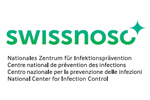Pancreas
Disorders of the pancreas
The pancreas lies hidden between the stomach and the spine. It has two important functions: it produces digestive enzymes and it regulates blood glucose. The most common disorders affecting the pancreas are acute inflammation (acute pancreatitis), chronic pancreatitis and pancreatic cancer.
Symptoms / Diagnosis
Patients with a disorder of the pancreas are referred to us by their general practitioner or specialist. The usual symptoms are pain or jaundice. Close interdisciplinary collaboration in the abdominal centre with gastroenterologists and the departments of radiology and nuclear medicine enables us to use various methods to reach an optimal and thorough diagnosis of your condition. Every patient is discussed by the tumour board, consisting of surgeons, gastroenterologists, oncologists and radiologists, and a joint therapy plan is developed. Only then is surgery carried out if necessary.
Gastroenterological treatment
Endosonography produces a very good image of the pancreas and enables samples to be taken or plastic drains to be inserted into cysts as required.
IIf a tumour is already at an advanced stage, or surgery is not viable for other reasons, ERCP can be used to insert a plastic or metal stent in the bile duct, thus enabling jaundice to be treated.
Chronic inflammation of the pancreas can lead to narrowing of the pancreatic duct. Here, too, stents can be inserted.
Surgical treatment
The primary goal of surgery is the complete removal of the tumour and the regional lymph drainage area (Whipple or Longmire-Traverso procedure) to achieve as much quality of life post-surgery as possible. It is sometimes not clear until the abdomen has been opened whether the tumour can be removed.
Pancreatic surgery is very complex. The excellent quality of the surgery carried out at Claraspital is ensured by the high number of cases (approx. 30 per year) and a small team of experienced surgeons. Our rate of complications is very low by international standards and is reflected both in scientific studies and in the positive feedback we receive from patients.
Surgery and the effective chemotherapy options available today combine to increase survival substantially. Palliative surgery can be performed on localized advanced tumours, allowing bile or food to pass and ensuring the patient's quality of life.
Selected patients with chronic inflammation of the pancreas may also benefit from surgery, in which either part of the pancreas is removed or the outflow of pancreatic secretions is improved. In the vast majority of cases this leads to a marked reduction of chronic pain and a better quality of life.








